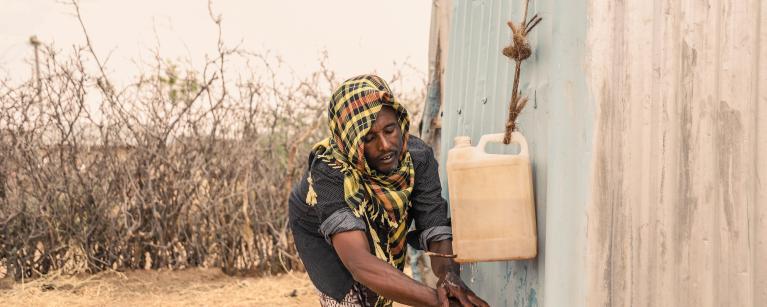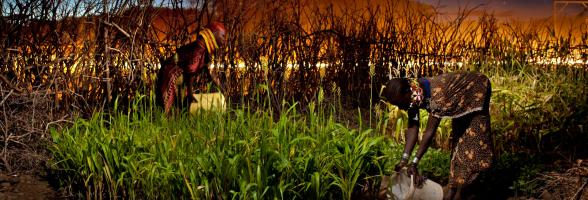When we were born, our parents put us in napkins. Today’s child wears diapers. I mean it is a given. As we grow up, we are taught how to use a toilet; be it a pit latrine or a good toilet with a bowl and flushing system, a toilet all the same. You don’t realise it but you never had to think about how you were going to defecate - it was almost or seemingly automatic.
But is it?
Qubi’s answer to this question would be a straight No! It was not automatic for him and his family. Growing up, Qubi did not know that toilets are a thing, because he was taught to just relieve himself anywhere in the compound at home. Sometimes he would cover it up and others he would forget. He was a kid, they forget things. He grew up and yes, he still relieved himself in the open albeit a bit more discreetly. He did know about toilets while growing up, but if it is not broken, why fix it? So, he would go hang out with his boys, chew some khat and when need arises, go to the nearest bush or behind his house and do the necessary.
“We just never had toilets in this village. I grew up knowing that you can relieve yourself anywhere so long as you cover it up. Also when I grew older, we would go and hide behind trees near the river and then try cover it up with soil but when the rains come, all the filth would flow into the river, which was our main source of water.”
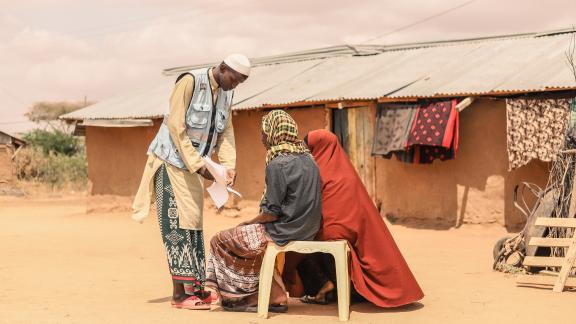
Qubi and his wife during the Community-Led Total Sanitation (CLTS) sensitization at their home in Modogashe, Isiolo. Photo by Mark Wahwai.
Qubi and his wife did not know better and they unintentionally taught their kids the same habits. Due to the water- borne and lifestyle diseases that were plaguing most community members, Oxfam in Kenya through its partnership with Merti Integrated Development Program (MID-P) under the ASAL Humanitarian Network (AHN) and the assistance of the Public Health Office in Isiolo County, intervened and offered training to community members on the dangers of open defecation as well as the importance of maintaining cleanliness and having proper toilets and waste control mechanisms.
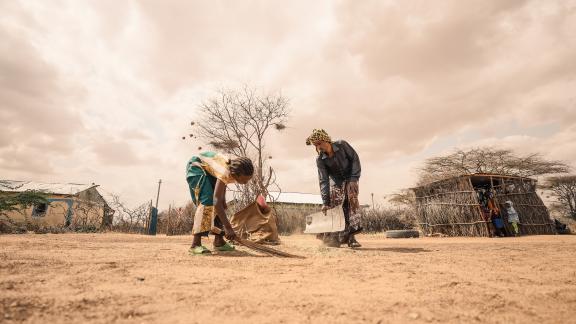
Qubi with his daughter cleaning their compound. Photo by Mark Whawai.
Through this program, they were able to train and teach 56 households where 26 of those have functional latrines, and 30 households have dug compost pits for disposal.
“MID-P came and trained us on how to wash our hands and general cleanliness. They helped us to build toilets, taught us how to store our utensils and the importance of sweeping our compound and waste management. It has really helped us to reduce the number of hospital visits, especially with our children, and also for us adults to take care of our health and living condition.”
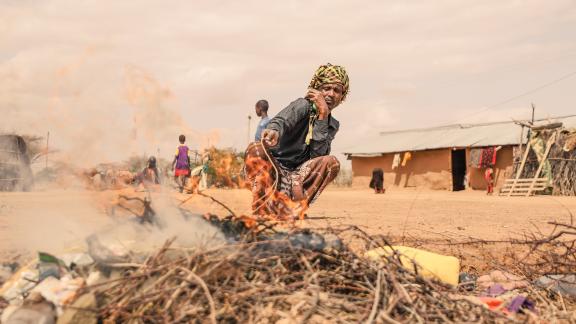
Qubi incinerating waste heap at his compound. Photo by Mark Whawai.
Qubi has been on a mission to educate his fellow community members on the importance of maintaining proper hygiene. He says he is winning them over one member at a time.
Story by Oxfam Communications.
